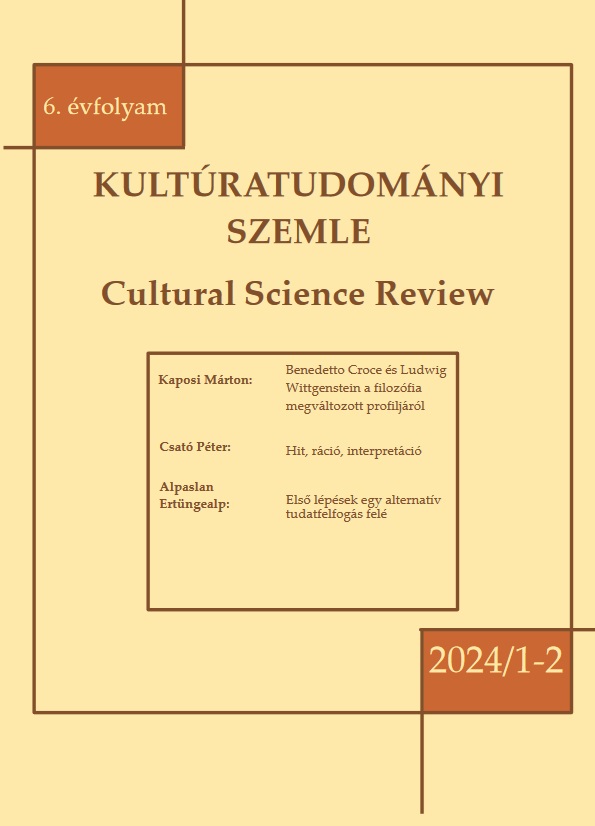Benedetto Croce és Ludwig Wittgenstein a filozófia megváltozott profiljáról
DOI:
https://doi.org/10.15170/KSZ.2024.06.01-02.01Absztrakt
Croce outlined a philosophical system consisting of only a few basic concepts, which formally generalizes the most basic traditions and expresses the most important values, but in terms of content includes the most up-to-date knowledge, which is
constantly renewed following social development. He considered the current task of philosophy to break with outdated, speculative metaphysical constructions, exclude pseudo-problems, and make problem discovery and problem solving the main task of knowledge acquisition, both in philosophy and in other forms of knowledge (science, everyday knowledge, etc.), consistently apply the method of historicity, since problems can only be solved by involving new true knowledge and evaluating it in relation to universality. Philosophy can be made meaningfully effective for life with this mode of operation - dialectically pragmatized. In this respect, Wittgenstein is the opposite of Croce, who tried to realize his largely similar aspiration - the foundation of a philosophy dealing only with the real - on different logical bases and narrowed down mainly to the philosophy of science. Croce tried to domesticate a philosophy with a broader theme, Wittgenstein tried to scientificize a reduced philosophy.

